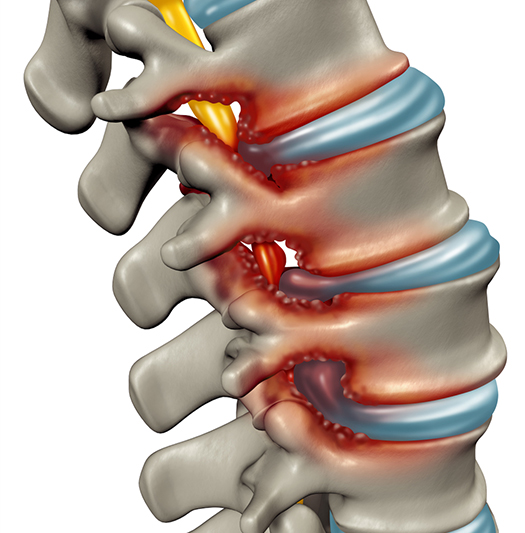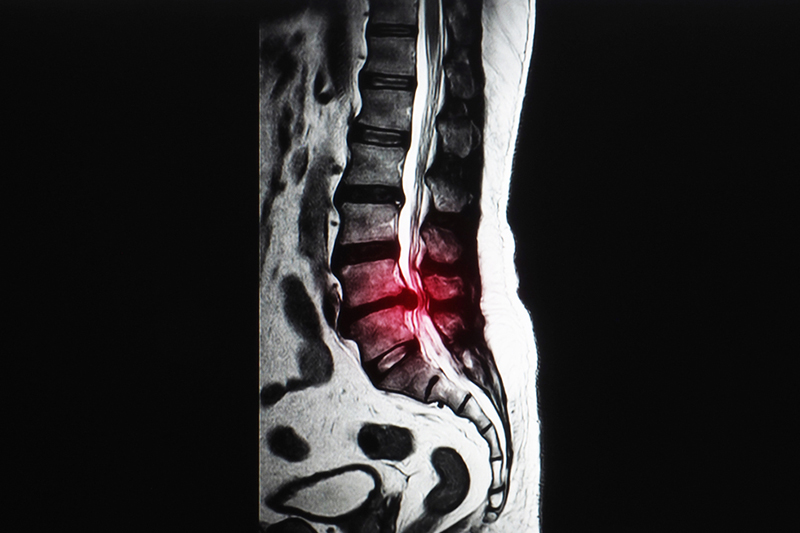Lumbar Spinal Stenosis in Beverly Hills

Spinal stenosis is a disorder involving the narrowing of the spinal canal. The spinal canal houses the spinal cord and nerve roots, and narrowing of this passage can cause compression and irritation of these structures.
Causes of Lumbar Spinal Stenosis
Any condition or disease process that takes up space or causes narrowing of the spinal canal can cause spinal stenosis. Some conditions are present at birth or due to developmental abnormalities and may present earlier in life.
Other causes of spinal stenosis are acquired and are either due to trauma, degeneration (wear and tear), disease, or a combination of these. Some of the contributing conditions may include:
- Compression fractures
- Lumbar disc herniation (see Lumbar Discogenic Pain or Lumbar Radiculopathy)
- Lumbar spondylosis with hypertrophy (see Lumbar Facet Syndrome)
- Spondylolisthesis (slippage of a vertebrae)
- Ligamentum flavum hypertrophy (thickening of a ligament in the spine)
- Tumor or neoplasm

Symptoms of Lumbar Spinal Stenosis
- Low back pain
- Numbness and/or tingling in the legs
- Weakness in the lower extremities
- Difficulty with balance and coordination
- Difficulty controlling bowel or bladder function
Diagnosis and Treatment of Lumbar Spinal Stenosis
The doctor will start by taking a detailed history and performing a thorough physical exam of the spine. Various diagnostic testing such as X-ray, MRI, or CT scans may be utilized to gain a better understanding of the location and severity of the problem.
Treatment of lumbar spinal stenosis often starts with conservative measures such as therapy, a home exercise program, bracing and/or medications. In less severe cases, a therapeutic injection (epidural) may be recommended to help ease the pain. Certain patients may be a candidate for Minimally Invasive Lumbar Decompression (the “MILD” procedure) or other minimally invasive procedures such as interspinous implants that can help open the spinal canal. In severe cases, surgical decompression may be recommended. The doctor will also rule out other conditions such as Lumbar Facet Syndrome, Lumbar Discogenic Pain, or Lumbar Radiculopathy that can produce similar symptoms.


